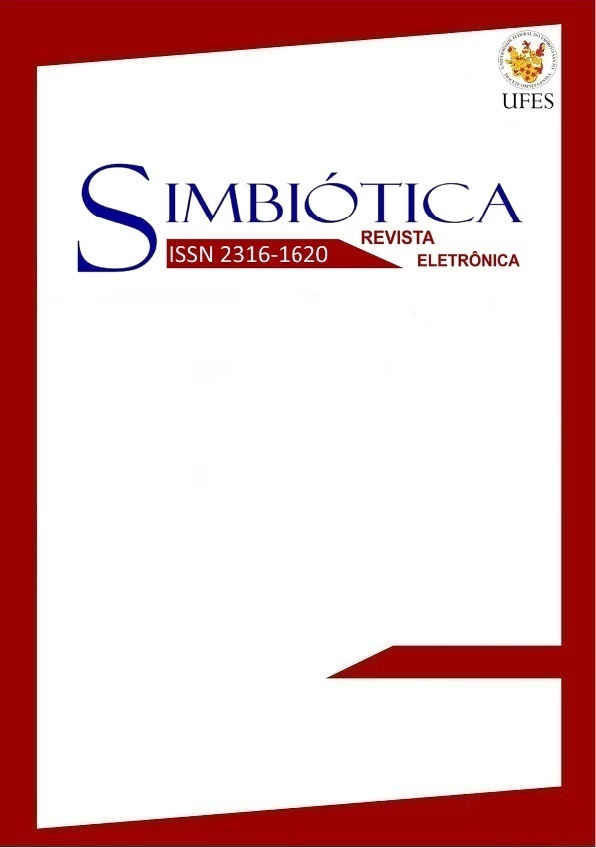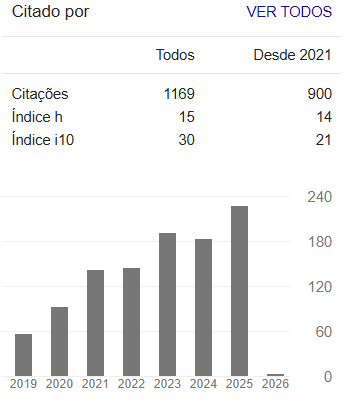Control migratorio en las fronteras de Brasil durante la pandemia: señales de autoritarismo en nuestra puerta
DOI:
https://doi.org/10.47456/simbitica.v8i2.36377Resumen
O fechamento de fronteiras foi uma medida tomada pela maioria dos países no combate à pandemia de Covid-19, inclusive o Brasil, mediante portarias interministeriais do governo federal. A proposta desta pesquisa é analisar tais portarias, quais as motivações do Poder Executivo, e o que esses atos significam para a democracia e para os direitos migratórios. Pelo método histórico-dedutivo, utilizando-se de pesquisa bibliográfica, realizou-se uma revisão teórica sobre o governo burocrático e autoritário na perspectiva de Arendt. Por meio de pesquisa documental (portarias, Ação Civil Pública e reportagens), analisou-se a legalidade das portarias que determinaram as restrições migratórias. Concluiu-se que o fechamento de fronteiras, no Brasil, é um projeto político autoritário de contenção migratória, não do vírus: as portarias interministeriais sob análise representam a utilização da burocracia pelo poder político, para subverter o sistema legal.
Palavras-chave: migrações; pandemia; democracia; burocracia.
Abstract
The closure of borders was a measure taken by most countries facing the Covid-19 pandemic, including Brazil, through interministerial ordinances of the federal government. The purpose of this research is to analyze such ordinances, what are the motivations of the Executive Branch, and what these acts mean for democracy and migratory rights. Through the historical-deductive method, using bibliographic research, a theoretical review of bureaucratic and authoritarian government was carried out in Arendt's perspective. Through documentary research (ordinances, Public Civil Action and reports), the legality of the ordinances that they determined to be migratory restrictions was analyzed. It was concluded that the closing of borders, in Brazil, is an authoritarian political project of migratory containment, not of the virus: the interministerial ordinances under analysis represent the use of bureaucracy by the political power to subvert the legal system.
Keywords: migrations; pandemic; democracy; bureaucracy.
Resumen
El cierre de fronteras fue una medida adoptada por la mayoría de países frente a la pandemia Covid-19, incluido Brasil, mediante ordenanzas interministeriales del gobierno federal. El propósito de esta investigación es analizar tales ordenanzas, cuáles son las motivaciones del Poder Ejecutivo y qué significan estos actos para la democracia y los derechos migratorios. A través del método histórico-deductivo, utilizando la investigación bibliográfica, se realizó una revisión teórica sobre el gobierno burocrático y autoritario en la perspectiva de Arendt. A través de la investigación documental (ordenanzas, Acción Civil Pública e informes) se analizó la legalidad de las ordenanzas que determinaban las restricciones migratorias. Se concluyó que el cierre de fronteras, en Brasil, es un proyecto político autoritario de contención migratoria, no del virus: las ordenanzas interministeriales analizadas representan el uso de la burocracia por el poder político para subvertir el sistema legal.
Palabras clave: migraciones; pandemia; democracia; burocracia.
Descargas
Publicado
Número
Sección
Licencia
Derechos de autor 2021 Elisa Marina Fonseca, Mirna de Lima Medeiros, João Irineu de Resende Miranda

Esta obra está bajo una licencia internacional Creative Commons Atribución-NoComercial 4.0.
Autores que publicam nesta revista concordam com os seguintes termos:
a. Autores mantém os direitos autorais e concedem à revista o direito de primeira publicação, com o trabalho simultaneamente licenciado sob a Creative Commons - Atribuição-NãoComercial 4.0 Internacional.
b. Compartilhar - copiar e distribuir o material em qualquer meio ou formato.
Adaptar - remix, transformar e construir sobre o material para qualquer finalidade, inclusive comercial.
c. Autores têm autorização para assumir contratos adicionais separadamente, para distribuição não-exclusiva da versão do trabalho publicada nesta revista (ex.: publicar em repositório institucional ou como capítulo de livro), com reconhecimento de autoria e publicação inicial nesta revista.
d. Autores têm permissão e são estimulados a publicar e distribuir seu trabalho online (ex.: em repositórios institucionais ou na sua página pessoal) a qualquer ponto antes ou durante o processo editorial, já que isso pode gerar alterações produtivas, bem como aumentar o impacto e a citação do trabalho publicado (Veja O Efeito do Acesso Livre).
Authors who publish in this journal agree to the following terms:
a. Authors retain the copyright and grant the magazine the right of first publication, with work simultaneously licensed under the CCreative Commons - Atribuição-NãoComercial 4.0 Internacional.
b. Share - copy and distribute the material in any medium or format.
Adapt - remix, transform and build on the material for any purpose, including commercial.
c. Authors are authorized to take additional contracts separately, for non-exclusive distribution of the version of the work published in this journal (eg, publish in institutional repository or as a book chapter), with acknowledgment of authorship and initial publication in this journal.
d. Authors are allowed and encouraged to publish and distribute their work online (eg.: in institutional repositories or on their personal page) at any point before or during the editorial process, as this can generate productive changes as well as increase the impact and the citation of the published work (See The Effect of Free Access).












